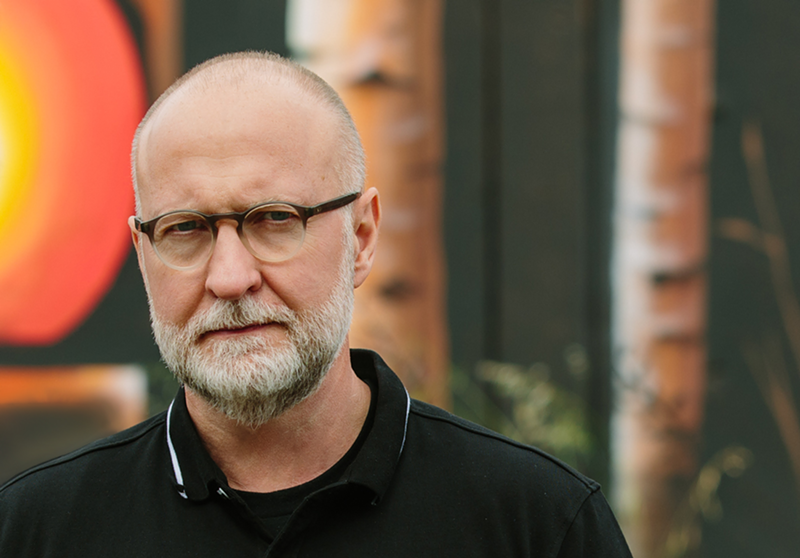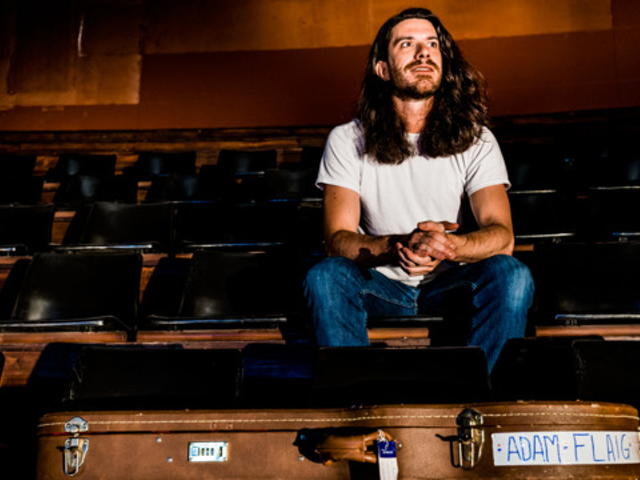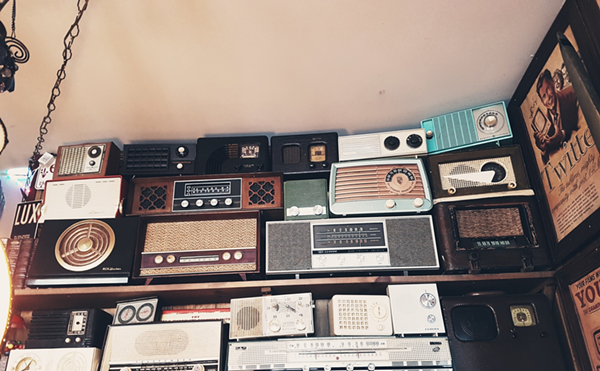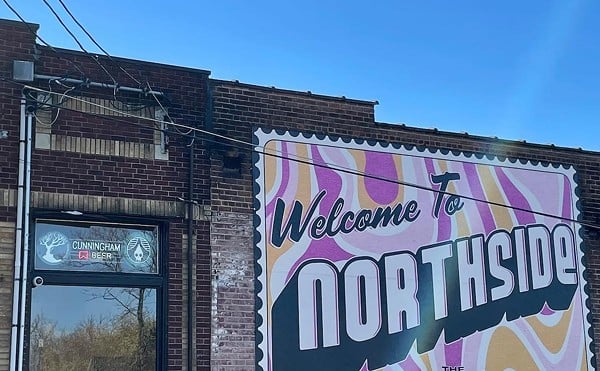Singer, songwriter and singular guitarist Bob Mould needs little introduction. The upstate New York native has been making music for four decades. He began with the influential 1980s Minneapolis Punk/Indie Rock trio Hüsker Dü, then enjoyed a fruitful two-album run in the early ’90s with Sugar.
As a solo artist, he has released a string of fuzzed-out Rock & Roll records driven by visceral guitar riffage and a jaundiced worldview often critical of conventional culture.
Now 59, Mould shows no signs of slowing down, capping an especially strong quartet of recent records — all backed by the stellar rhythm section of bassist Jason Narducy and drummer Jon Wurster — with 2019’s Sunshine Rock, as varied, urgent and (somewhat surprisingly) upbeat as any effort in Mould’s long discography.
CityBeat recently connected with Mould, who currently splits time between homes in San Francisco and Berlin, Germany, to discuss everything from the nexus of Sunshine Rock to the importance of playing live.
CityBeat: I read that you wrote the new record almost entirely in Berlin. What impact did that have on the process and the final result?
Bob Mould: I feel like I’m free floating at times when I’m there because I don’t understand everything that’s happening around me. I don’t speak the language. It was funny, I felt like I was completely in observation mode. Obviously, I have a lot of friends there and it’s a good life and (I’m) participating in a lot of things, but still it’s almost childlike because I’m just not processing everything that is happening around me with a critical eye. Living in that kind of state of being was pretty curious. I hope that it shows up in the work. I think the work is a lot more optimistic than the two records prior: Patch the Sky and Beauty & Ruin were both records about loss, and I did not want to write that record again. So being in Berlin, having these naïve experiences and this simple life, combining all that with trying to consciously have an optimistic outlook and write optimistic songs as best I could, that was the vista I had in front of me.
CB: You’ve also talked about how the music of your youth, stuff like early Beach Boys and Beatles singles, influenced Sunshine Rock. Why were you drawn to that particular period for inspiration this time?
BM: I often go back to that point in time when I’m stuck on an idea because when I listen to that era of music it’s so rich in melody and it’s so simplistic. I mean, America was so different then and Pop music was so different then. Sometimes in a world where I feel like I have the heavy weight of information and technology and immediacy and convenience, when all of that weighs me down, even if it’s 30 minutes with my stupid little record player and those stupid singles, it can really lift all of that away. It’s like going into a different world, and sometimes that’s the answer for why I’m stuck on something. I can sort of un-stick it really quickly. Music is great for that.
CB: You’ve been playing with Jason (Narducy) and Jon (Wurster) for almost as long as you were in Hüsker Dü. How have they impacted what you do?
BM: Jason and Jon are very familiar with my entire songbook and the three of us share a lot of similar favorite musicians and albums. We have a pretty big shared vocabulary around this one specific style of music. When you have that with people, and you don’t have to be in a band with them every day for seven years straight, that’s the best of all possible worlds. We’re like the tightest band that never rehearses. We love hanging out but we don’t have to do it every day for seven years with no money, so it cuts down on all that friction that eventually happens when you are in that other situation.
CB: The other constant over that period is your collaboration with Merge Records. How has that relationship evolved over the years?
BM: It’s a great relationship. I get the freedom to make the records that I want to make. I get to present them to the world the way that I’d like people to see them and hear them. Merge being an independent label is more comfortable than working with bigger labels. I had my time at Warner Bros. I had my time a Virgin. Both labels were great to me and did everything that they could but I don’t know if I’m a corporate guy. I look to Merge to see how we can best fit my difficult reputation as being stubborn and independent and contrary, how we can fit that in the current landscape? It’s a really crowded field. It’s a difficult field. The people who hold the master keys to the biosphere are not the same ones that I remember in 1985.
CB: What can we expect from your current solo electric tour? Will you be playing mostly new stuff?
BM: I try to keep a decent balance of what I call the “hits” mixed with the current stuff from the last decade, which are the songs that are still really exciting for me to play. In January, I was trying out a lot of new stuff, five songs maybe. It’s a little hotter in content than the last four records. It’s a little more pointed. It’s a little more current. It’s maybe a little more political, so that’s in the mix, too. The Hüsker stuff is always fun and I know people love to hear those songs, so I’m happy to play a handful of those. It’s a pretty good set. People loved those January shows. That was one of the most fun runs of dates that I’ve done ages. People were just really receptive. There were also moments of talking about the world as it is right now and sort of trying to take the temperature of the room and see if everybody’s going to go vote, because they have to. It’s not really an option at this point. You have to do it.
CB: You’ve talked about the importance of touring and building community, which you’ve been doing pretty much your entire career. Why is playing live so important to you?
BM: In a year like 2020, it’s imperative that we build community, because if we don’t, we will have no communities left. It’s the communal aspect of people getting together in a room to have this shared experience where everybody is there because they love live music. There’s nothing like live music. That’s what we all live for.
Bob Mould’s “solo electric” show at 20th Century Theater on Sunday, March 22 has been postponed. Show/ticket info: the20thcenturytheater.com.






